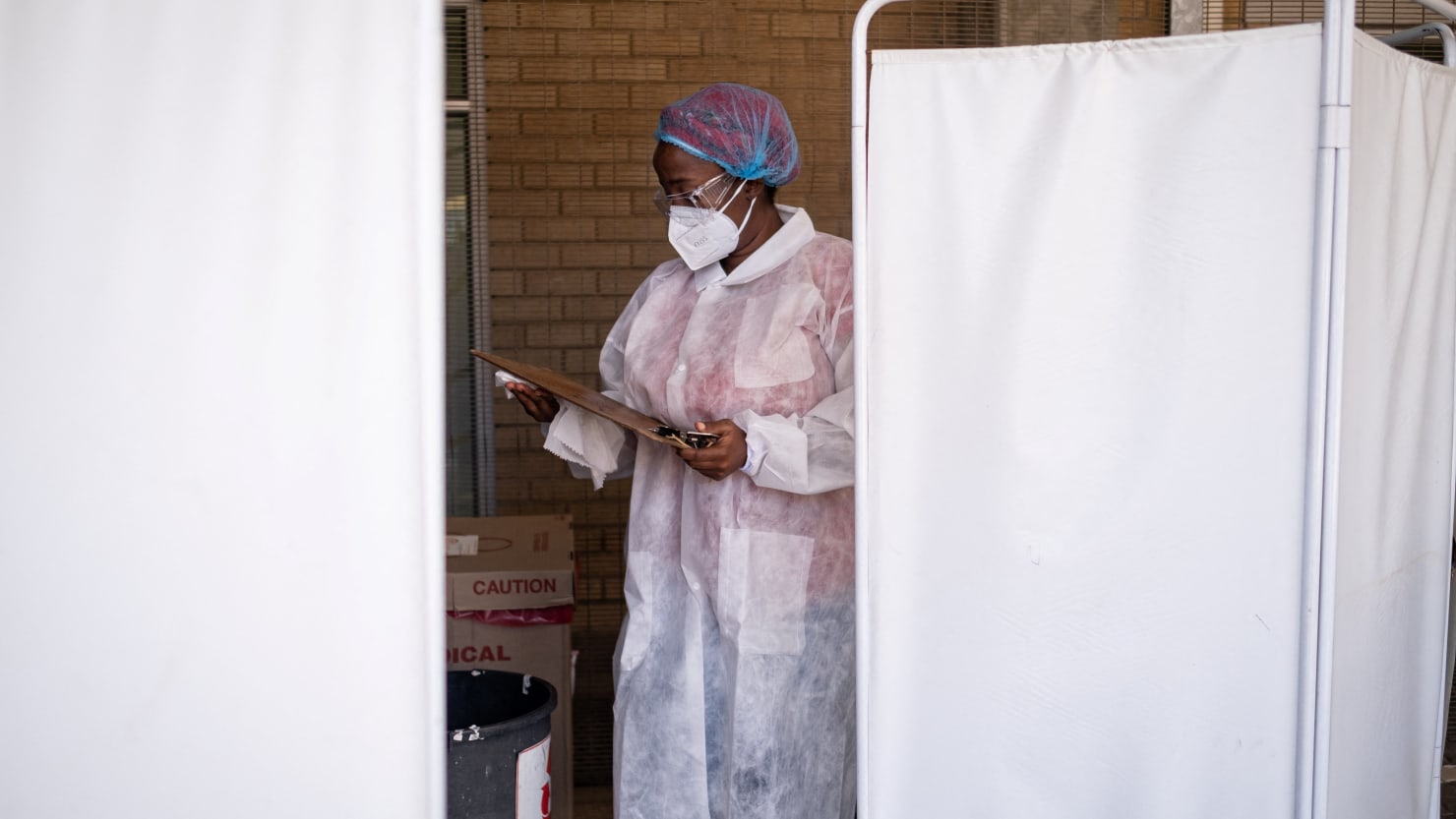
The “highly transmissible” Omicron variant of coronavirus ripping through South Africa is putting disproportionately large numbers of children under 5 years old in hospitals, a top South African government medical adviser said Friday.
The alarming development raises the prospect of a new global battle cycle against the virus, given that the new variant has already spread to dozens of countries. The South African scientists also said the new variant was spreading much quicker than any previous wave of the coronavirus.
In a worrying virtual press conference, government adviser Waasila Jassat, speaking about the worst-affected area of Gauteng province (which includes the city of Johannesburg), said: “It’s clear in Gauteng, the week-on-week increase we’re seeing in cases and admissions is higher than we’ve seen it before. We’ve seen quite a sharp increase [in hospital admissions] across all age groups but particularly in the under 5s.”
She added: “The incidence in those under 5 is now second highest, second only to those over 60. The trend that we’re seeing now, that is different to what we’ve seen before, is a particular increase in hospital admissions in children under 5 years.
“We’ve always seen children not being very heavily affected by the COVID epidemic in the past, not having many admissions. In the third wave, we saw more admissions in young children under 5 and in teenagers, 15-19, and now, at the start of this fourth wave, we have seen quite a sharp increase across all age groups, but particularly in the under 5s.”
Jassat produced graphs that clearly showed how children under 5 years old are now being hospitalized at an alarming rate.
She said, for example, that in the city of Tshwane Metro, more than 100 children under the age of 5 were admitted to hospitals with COVID in the first two weeks of the new fourth wave (Nov. 14 to 27). In the first two weeks of the country’s third wave, in May of this year, fewer than 20 children were admitted to hospitals.
In a follow-up question-and-answer session, asked about the extraordinary numbers of children being admitted to hospital, Jassat said she suspected there might be an “immunity gap” and that the lack of vaccination of children might account for the numbers.
She said that with adults increasingly vaccinated, children are the ones who are “getting sick and need to be admitted.”
She added that pediatricians at the Tshwane hospital had told them, anecdotally, that “all” of the children ages 12-18 who were admitted were not vaccinated, even though they were eligible. “And the younger children, younger than 12, who were not eligible for vaccination, none of their parents, except for three, were vaccinated.”
She said this showed “the value of vaccination in the adult protecting the children in the homes.”
Just over 42 percent of all adults have received at least one vaccination dose in South Africa, Health Minister Joe Phaahla said.
Another specialist, epidemiologist Michelle Groome, told the virtual meeting that daily hospital admissions in the worst-affected parts of Gauteng province have rocketed to 78 from 19.
Groome sounded the alarm over the “rapidly increasing” seven-day average of cases which has gone from 332 on Dec. 1 to 4,814 today.
She said: “If you have a look at the slope of this increase, you can see that we really are seeing an unprecedented increase in the number of new cases in a very short period of time, really just climbing right up.”
She said the virus’ reproductive number—a measure of how many people each infected person infects—had climbed to 2.33 in Gauteng.
Groome said: “This is the highest we’ve ever seen it since the start of the pandemic.”
Phaahla said daily cases have rocketed by 9,000 cases per day, climbing from “2,465 new cases last Thursday when this variant was announced to yesterday’s high of 11,535.”
“This variant is indeed highly transmissible, including in people who have already been vaccinated,” he said.
This remark echoed the findings of a paper published Friday, not yet peer-reviewed, which, The Washington Post reported, claims Omicron is three times as likely to cause reinfection than previous variants. The Post said: “Statistical analysis of some 2.8 million positive coronavirus samples in South Africa, 35,670 of which were suspected to be reinfections, led researchers to conclude that the Omicron mutation has a ‘substantial ability to evade immunity from prior infection.’”
Phaahla attempted to sound an optimistic note by saying that he believes the new variant is more transmissible “but less severe” than previous variants.
He said that while vaccinated people are getting infected, a disproportionate number of those ending up in hospitals are not vaccinated and that the South African hospital system is coping for the time being and has spare capacity.
However, his remarks are likely to be treated with caution as hospitalizations tend to lag infections by several weeks, and the press conference left little doubt that the country is being pummeled by the Omicron variant.
He said the country’s COVID test positivity rate has soared to 22 percent from below 2 percent just two weeks ago.
Phaahla expressed his “outrage and disappointment” at travel bans on southern African nations, saying they “undermine international cooperation and solidarity.”
The UN has previously said such flight bans are a form of “travel apartheid” and could be counterproductive as they will dissuade nations from reporting new variants.
COVID-19 - Latest - Google News
December 04, 2021 at 03:20AM
https://ift.tt/3dgKM60
'Unprecedented' Omicron Surge in South Africa Is Hitting Children Under Age 5 - The Daily Beast
COVID-19 - Latest - Google News
https://ift.tt/2VQ2gy8

No comments:
Post a Comment